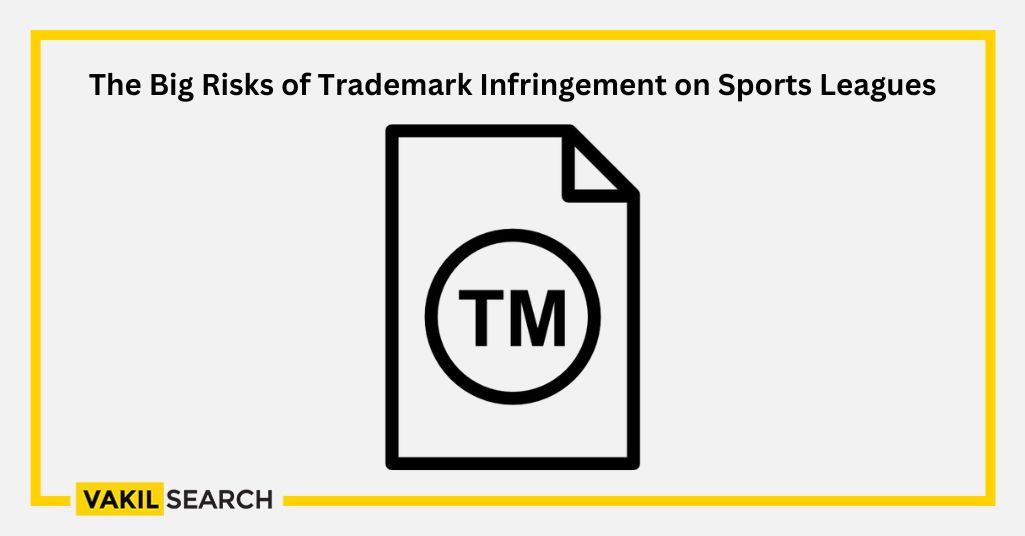This blog will discuss the history of trademarks in sports and the risks of trademark infringement for small businesses. It will also emphasize the importance of consulting with an attorney to protect your business.
There is a big risk of trademark infringement in sports leagues. Read the article to know more.
The Long History of Trademarks and Sports
-
The First Sports Team to Trademark Its Logo
Sports teams have been trademarking their logos for decades. The Los Angeles Dodgers were the first to do so in 1940, followed by teams like the New York Yankees, Manchester United, and the Dallas Cowboys.
-
The Value of Logos and Trademarks for Sports Teams
Sports team logos and trademarks generate revenue from merchandise, sponsorships, and licenses. They establish a team’s identity and reputation. Additionally, preventing confusion among fans by prohibiting others from using similar designs or names.
Risks for Small Businesses
-
The Rise of E-commerce and Social Media
Small businesses can face legal risks and financial damages if they infringe on a sports team’s trademark. This can happen when a business uses a similar name, logo, or design without realising it’s already been trademarked by a sports team.
-
Unintentional Trademark Infringement
Even if a business doesn’t infringe on a sports team’s trademark, it can still face legal action and consequences. This can include being forced to change its name or logo, paying damages to the sports team, and losing revenue due to a damaged reputation.
-
Legal Action and Its Consequences
Legal action due to trademark infringement can be expensive and take up a lot of time. Trademark infringement lawsuits can be expensive and time-consuming, which is a big problem for small businesses that have limited funds. Moreover, such lawsuits can damage a small business’s reputation, causing severe harm. A trademark lawsuit can result in negative publicity, which can be detrimental to a small business.
Protect Your Business By Speaking with an Attorney
-
The Importance of Consulting with an Attorney
If you own a small business, it’s important to talk to a lawyer about trademarks. They can help you understand what you need to do to protect your business and avoid breaking someone else’s trademark. They can also help you search for trademarks and come up with a plan to keep your business safe.
-
Developing a Strategy to Protect Your Business
If you’ve spoken to a lawyer, you can make a plan to safeguard your small business against trademark infringement. You may consider adding a disclaimer to your website or products. This could come up with a unique name and logo. Additionally, checking for any similar designs or names being used by others.
Risks for Small Businesses
Small businesses are at risk of trademark infringement. They may use a similar trademark accidentally. They may also fail to properly register their own trademark. This can lead to expensive legal battles that may cause bankruptcy. Small businesses may not have the resources to track their competitors’ trademark use or defend their own trademarks in court. This can result in expensive legal battles that could bankrupt them. Small businesses may not have enough resources to track their competitors’ use of their trademarks. As a result, they may find it challenging to protect their trademarks in court.
Protect Your Business By Speaking with an Attorney
Small businesses can get help from an attorney to avoid trademark problems. The attorney can help with trademark searches to ensure the business can use and register their desired trademarks. They can also advise on how to monitor competitors using the same trademark. If a problem arises over a trademark, the lawyer can speak for the business in court and help them protect their trademark rights.
Conducting a Trademark Search and Using a Disclaimer
Conducting a trademark search can help you determine if your business’s name, logo, or design is already being used by someone else. If you find that there is a potential conflict, you may be able to use a disclaimer to distinguish your business from the sports team’s trademark.
Challenges of Trademarking in Sports
Seeking a trademark and obtaining exclusive rights to it may appear to be a straightforward and effective means of maximising revenue. However, the world of sports has witnessed numerous instances of absurd trademark claims and even more ludicrous attempts. As an athlete or a fan of Usain Bolt, it is important to refrain from publicly imitating his renowned ‘LIGHTNING BOLT’ gesture, as doing so could result in facing a trademark infringement lawsuit. An example of trademark ownership gone awry is Nike, the sponsor of tennis legend Roger Federer, who trademarked the initials ‘RF’ and printed them on Federer’s apparel. When their partnership ended, Federer found himself without rights to his own initials, as Nike had already established them as a trademarked product. Similarly, in 2003, the International Cricket Council (ICC) sought to retain the trademark for the term ‘WORLD CUP’ based on their prior trademark of ‘ICC CRICKET WORLD CUP SOUTH AFRICA 2003’. These instances demonstrate that trademarks in sports can potentially create trouble for the licensor, licensee, and even ordinary individuals. With the growing popularity of athletes and the celebration of their unique identities, trademarking has become more prevalent than ever. However, it is crucial for courts, registering authorities, and the public to remain informed and vigilant. Failure to do so may unintentionally lead to trademark breaches or infringements on the rights of others.
Conclusion
Trademark infringement can have serious consequences for small businesses, including legal action, damages, and negative publicity. To avoid these risks, it’s important for small businesses to take steps to protect their business and consult with an attorney if they have any questions or concerns about trademark law.
At Vakilsearch, we understand the importance of protecting your business from legal action and can provide you with the legal advice and services you need to ensure that your business is in compliance with trademark law.
Also, Read:




